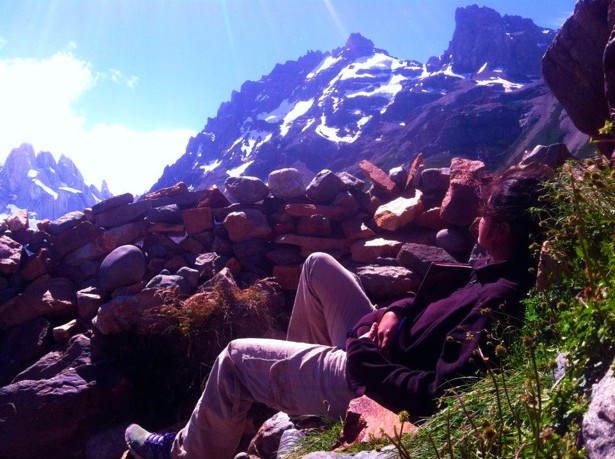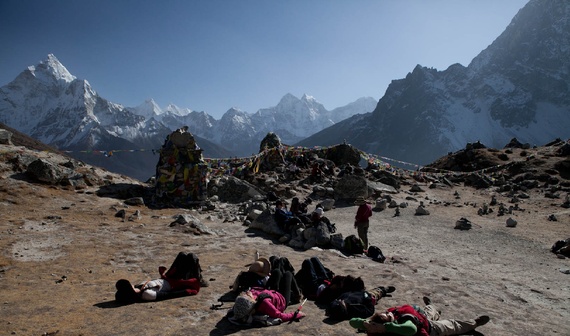A disillusioned, recession-battered generation is investing in overseas experience—and hoping the bet pays off.

The author in Argentina’s Patagonia region Kevin Parine
by AMANDA MACHADO
JUN 18, 2014
This kind of travel did not come naturally to me. I grew up middle class in Florida in a family where “traveling” generally meant driving two hours to the nicest nearby beach. I got a passport when I was 16 so I could visit my extended family in Ecuador, and by the time I entered college, that family reunion was still the only time I had ever been overseas. Until I discovered the backpacking scene, I always considered travel to be something reserved for the wealthy, or at least for people with far more experience abroad than I had.
But with easy access to social media and budget-travel tools like Airbnb, Couchsurfing, Skyscanner, and Lonely Planet message boards, I soon realized that long-term travel wasn’t nearly as expensive or difficult as I had imagined. I funded my 15-month trip on a little more than $16,000 (that’s luxurious: many backpackers I met spent half as much in the same amount of time). I saved more than half the money from a part-time job in high school, and the rest came from two years of work after college. And while there’s little data on the economic backgrounds of backpackers, the people I met during my trip—waiters, teachers, seasonal workers, flight attendants, carpenters—gave me the sense that people of diverse means had done the same.

But while long-term travel and gap years have been popular for years in countries such as Australia and the United Kingdom, the idea is still relatively new in the United States—and not yet widely accepted.
“If you were to ask older people. ‘Is this a good idea, should I go do this?’ the answer perceived is ‘no,’” says Randall Bourquin, 25, who spent six months last year backpacking through South and Central America. “People think that there’s too much opportunity cost, or that it’s going to cause a speed bump in your career.”
Yet according to the WYSE Travel Confederation’s report, many young travelers use their extended trips not only for leisure, but also as a form of job training: 22 percent of respondents wanted to learn a language during their travels, 15 percent wanted to gain more work experience, and 15 percent wanted to study—all increases since 2007.
These skills can translate into a competitive advantage in the workplace. Elizabeth Harper, 25, discovered her career interests while backpacking in Southeast Asia. Traveling gave her time to read for pleasure, and she ended up leafing through books passed around in hostels about atrocities that had occurred in the countries she was visiting. She eventually graduated with a master’s degree in international human-rights law and has since worked on human-rights issues for the United Nations and the International Commission of Jurists. Bourquin leveraged his trip into a sports-marketing job at Univision. My travels helped me obtain a summer job with Global Glimpse, an organization that takes disadvantaged students on educational trips through Nicaragua.
As a daughter of immigrants, the American Dream has played an ever-present role in my career decisions. After seeing how few options my mother had as a woman who spent a large part of her childhood in poverty, I wanted to do everything she never had the opportunity to accomplish. Growing up, that meant graduating from a prestigious university and getting a respectable job. But gradually I realized my standard definition of the American Dream was incomplete: It was not only about obtaining education and a good job, but also about focusing on how my career choices contributed to my overall well-being. It was about gaining experiences outside my career, like travel, that would have otherwise been unavailable to me.
For me and many others millennials, this was the opportunity we worked hard to achieve: the opportunity to have options—to have time to reflect, and to experience the world in a way many generations before us never could.
